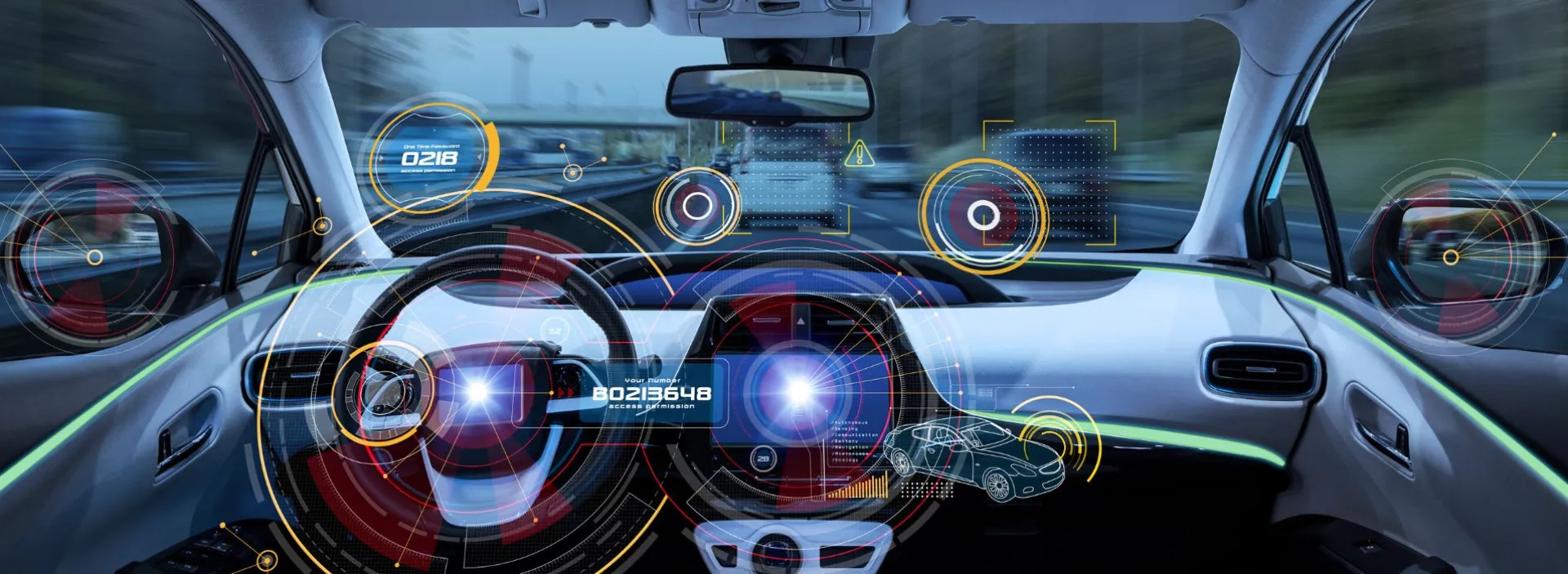Impact, Benefits & Future of AI in the Automotive Industry
Introduction: AI Driving the Future of Mobility
The automotive world is undergoing a revolutionary transformation, and at the heart of it lies Artificial Intelligence (AI). No longer just a futuristic buzzword, AI is now a practical and powerful force in modern vehicles. From voice assistants to autonomous driving, the role of AI in cars is growing rapidly, redefining how we drive, maintain, and interact with vehicles.
This blog explores the impact, key benefits, and exciting future of AI in the automobile industry. It also discusses how technologies like LiDAR sensors play a crucial role in enabling intelligent, safe, and autonomous driving experiences.
The Growing Role of Artificial Intelligence in Cars
AI has become a key enabler of innovation in the auto industry. It powers everything from driver assistance features and predictive maintenance to in-car infotainment systems and autonomous navigation.
When we talk about artificial intelligence and cars, we’re referring to a combination of machine learning, computer vision, natural language processing, and decision-making algorithms that allow vehicles to sense, analyse, and respond to their surroundings.
Here are some real-world applications of automotive artificial intelligence:
- Advanced Driver Assistance Systems (ADAS): AI helps vehicles detect pedestrians, avoid collisions, and stay within lanes.
- Voice & Gesture Control: AI-powered assistants like Siri, Alexa Auto, and Google Assistant provide hands-free control over navigation, calls, and media.
- Autonomous Driving: AI is the brain behind self-driving algorithms, enabling the vehicle to make decisions without human input.
Impact of AI on the Automotive Industry
Artificial intelligence has already started reshaping every part of the automotive value chain, from design and production to sales and after-service.
1. Manufacturing Efficiency
AI enables automation of assembly lines, quality control through image recognition, and predictive maintenance of equipment, improving productivity and reducing costs.
2. Enhanced Safety
With real-time data processing, AI reduces human error. AI in cars can detect dangerous conditions faster than human drivers and respond instantly.
3. Smart Navigation
AI-powered GPS systems now offer predictive route planning, traffic updates, and eco-friendly travel options, improving fuel efficiency and driver comfort.
4. Customization & Personalization
AI tailors in-car experiences by learning driver preferences and optimising seat positions, climate settings, and entertainment choices.
The Role of LiDAR Sensors in AI-Driven Vehicles
When discussing artificial intelligence in cars, it’s impossible to ignore the importance of perception systems like LiDAR.
So, what is LiDAR?
LiDAR (Light Detection and Ranging) is a remote sensing technology that uses laser pulses to create a high-resolution 3D map of a vehicle’s surroundings. It’s a crucial sensor in autonomous vehicles, working alongside AI to perceive objects, calculate distances, and detect obstacles with precision.
Here’s how LiDAR sensors empower AI in vehicles:
- Object Detection: Helps the AI differentiate between vehicles, pedestrians, and objects on the road.
- Environment Mapping: Enables accurate 360-degree mapping for autonomous navigation.
- Night & Low-Light Visibility: Complements camera systems to function in dark or foggy conditions.
The integration of LiDAR systems with AI results in safer, more aware vehicles that can operate in complex environments with greater reliability.
Key Benefits of AI in Automotive
Increased Safety
AI can detect and react to hazards faster than humans. Combined with LiDAR, it enables smarter decision-making and accident prevention.
Predictive Maintenance
AI systems can monitor engine performance and alert drivers before issues arise—reducing downtime and repair costs.
Improved Customer Experience
From intelligent infotainment to proactive service scheduling, AI creates a smoother, more personalised driving journey.
Enhanced Fleet Management
For commercial fleets, AI helps with route optimisation, fuel usage tracking, and driver behaviour monitoring—boosting overall efficiency.
Challenges Ahead
Despite the promise, there are challenges to overcome:
- Data Privacy: The more data AI uses, the greater the need for robust privacy protection.
- Regulations: Legal and ethical standards for AI in vehicles are still evolving.
- Sensor Reliability: Technologies like LiDAR sensors need to function reliably in all weather and terrain conditions.
But with continuous innovation and testing, these hurdles are gradually being addressed.
The Future of AI in the Automobile Industry
Looking ahead, automotive artificial intelligence will move beyond assistance to full autonomy. The rise of AI in the automobile industry points to a future where:
- Self-learning algorithms will continuously adapt to road conditions and driver behaviour.
- Vehicle-to-everything (V2X) communication will allow cars to talk to traffic signals, pedestrians, and other vehicles.
- AI-based ethical decision-making will play a role in critical driving scenarios.
As artificial intelligence in the automotive industry matures, expect tighter integration with cloud computing, real-time analytics, and LiDAR systems for even more precise driving intelligence.
Conclusion: A New Era of Intelligent Driving
The fusion of AI in automotive technology with advanced sensors like LiDAR is not just enhancing today’s vehicles—it’s redefining the concept of driving itself. With AI at the core, the automotive industry is on the path to safer roads, smarter transportation systems, and fully autonomous driving.
In short, artificial intelligence and cars are no longer science fiction—they are the future, and that future is already here.

